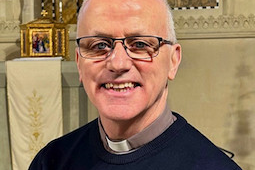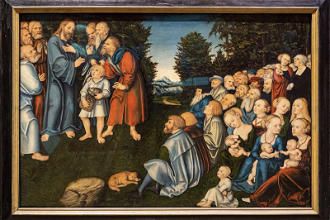CPT report from Iraq on progress with water and peace
At the entrance of the Al Wathba water treatment plant, Doug Pritchard and I found Kareem, one of the guards at the plant when our peace team camped there during the bombing of Baghdad, in March 2003. Now he works there as an Iraqi policeman. He greeted us warmly and took us to see Layla Al Athary, the head water-treatment engineer. Layla was proud to show us the many improvements in the treatment system since CPTers' last visit in Jan. 2004. A UN agency provided alum, used to separate large particulates out of the water. The US had supplied a new generator, which now gives them enough backup electricity. Layla took a sample of their treated water in a test tube and did two simple chemical tests for us. One showed a good level of clarity and the other an adequate amount of chlorine. According to Layla, Al Wathba is only one of four "water projects" servicing the neighbourhoods on the east side of the Tigris River. But not all the projects are running as well as this. The Aadhamiya water system still uses pipes dating back to 1935, now plagued with cracks and breaks. Layla introduced us to eight students of the Institute of Technology working with her as summer interns. Seven of them were women. "Once we complete our program, it will be hard to find jobs, especially for the women," they told us. The young man, from Sadr City, told us there was very little water available to the people there. "What little water we have is very dirty, full of sewage," he said. "Can you help us get a new project for Sadr City?" We had to tell him that CPT could only tell others about the conditions there. We heard later that the US military has just began a multimillion dollar effort to improve the sewage and water supply in Sadr City, now, over a year after the invasion. It was good to see that the small date palm tree planted in March 2003 by a CPT delegation and labelled the "Tree of Life," was still living and had been freshly watered. During that pre-war time, it had been a symbol of our hope for the peace and new life the Iraqi people desperately needed. During the bombing it stood next to the tents where CPTers slept, reminding them of God's life-giving presence among them in the midst of war. Last January 2004, CPTers placed near it a plaque honouring CPTer George Weber who had called for peace, not war, but then died in an automobile accident in southern Iraq, January 2003. Today the tree reminds me of the progress toward justice and peace in Iraq. It is still very small and fragile. To flourish, it needs the kind of dedication that Layla gave during the bombing, working around the clock to keep Al Wathba running, and of George who was willing to give his life. It needs the fresh leadership of the new generation. It needs to be daily watered by Iraqi people and supported in love by people around the world. Christian Peacemaker Teams is an ecumenical violence-reduction program with roots in the historic peace churches. Teams of trained peace workers live in areas of lethal conflict around the world. CPT has been present in Iraq since October, 2002.


















